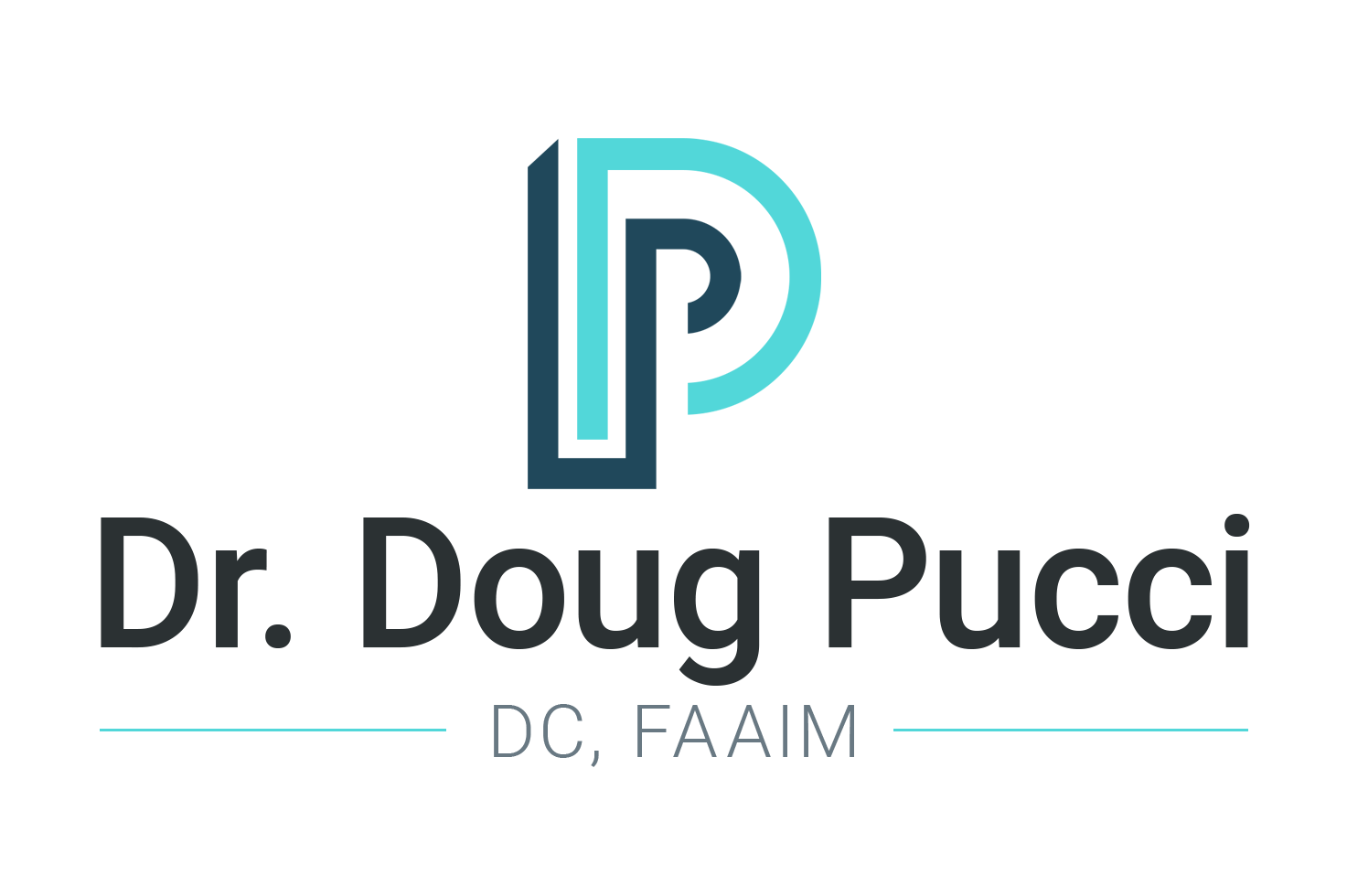Stress Belly and Hormonal Weight Gain A lot can be done to transition gracefully into each phase of adulthood for women—and men—by gaining a foothold against stress and managing hormones.
The subject of stress and hormones is important for everyone—both men and women. Women tend to have more questions about the role hormones play with regard to weight, particularly weight changes during perimenopause and menopause and also weight changes during their menstrual cycle. As men get into andropause, they struggle to keep their weight down. Hormones are constantly fluctuating and changing, but they play a key role in all these issues.
Our bodies have a single integrated system known as a super system that includes the neuro (brain), endocrine (hormone) and immune (gut) systems. There is crosstalk among these three systems, so for example, any dysregulation in the gut will impact and influence the brain and hormones. So when we talk about losing weight and overall health, we’re talking about the integration of all three of these systems. This is why losing weight is about getting healthy first and foremost.
The endocrine system begins with the hypothalamus in the brain, which sends messages to the pituitary gland. Think of the hypothalamus as the CEO of the hormone corporation and the pituitary gland is the president that answers to the CEO. Taking orders from the pituitary (president) are other glands that we can think of as factories that pump out their own hormones, which also have crosstalk of their own: pancreas (insulin), thyroid (metabolism), adrenal (stress), ovaries/testes (reproduction), pineal (sleep), and thymus (immune).
All together, these make up our hormone system, and the brain regulates and controls them all. So when there is an imbalance in gut health, it communicates this imbalance to the brain which then creates an imbalance in the hormones as well. (For more detail on the hormone cascade and how these chemical messengers interact with our genes, watch the Day 3 5lb Challenge video or read the Day 3 Energy Challenge blog post.) This is why the standard medical model of treating only one of these areas where symptoms occur doesn’t work. The functional medicine model instead looks at the mechanisms in the entire super system that is driving the hormone cascade.
Stress plays a huge role in weight and belly fat. As most people know, there’s good stress and bad stress. Gravity is considered good stress in that it keeps muscles and bones strong; for some people, deadlines create good stress because it makes them more productive and creative. On the other hand, we want to avoid the two main types of bad stress: emotional stress (worry and fear) and, less recognized, physiological stress (negative chemical changes in the body such as blood sugar, underlying infections, poor sleep, etc.). When there is a stress overload, our bodies reach a point where they simply can’t handle it anymore.
It’s important that all hormones are able to be metabolized and cleared by the body. There are three parts to hormones: production (messages sent from the brain to the glands telling them to manufacture hormones), activation, and elimination (metabolism). Estrogen metabolites are pro-inflammatory, can cause oxidative stress and are toxic, so it’s important that these metabolites are eliminated from the body or else they’ll back up and accumulate. Estrogen that is not cleared will be stored as fat; likewise, fat in the body will accumulate estrogen, which becomes a vicious cycle. In addition, we accumulate an abundance of toxins from everyday life, known as obesogens, which are chemicals in the environment that cause obesity—these are endocrine disruptors.
Many of these chemicals come from eating industrially farmed meats as well as non-organic fruits and vegetables that have been sprayed and grown with pesticides, herbicides, and fungicides. Choosing organic foods helps to lower the toxic load overall. In addition, BPAs are the number one top hormone disruptor; these are commonly used in plastic bottles, cash register receipts, and cans.
The good news is that there are a number of strategies to detoxify. These include increasing fiber and water intake, bone broth and limeade fasts, consistent exercise, using an infrared sauna, and supplements—the goal is to detoxify important organs like the liver, gallbladder, lymphatics, and kidneys.
Learn more about how stress physiology affects weight, or how hormone balance can assist with weight loss by tuning into Module 3 of The Down5 Pounds Challenge.
Participants who have implemented the strategies learned in the 5-Day LIVE Weight Loss Challenge have reported less pain, fewer headaches, more energy and weight loss. However, The Down5 Pounds Challenge is not the promise of a cure and does not constitute medical advice. To learn more about The Down5 Pounds Challenge: How to Curb the Midlife Madness Overtaking Your Gut!, please visit our website at learn.getwell-now.com. For questions or To dig a little deeper into your own unique biochemistry or learn about root cause healing and functional medicine, visit us at Get Well Now and schedule a Discovery Call.
About Dr Pucci - Dr. Doug Pucci, Founder, Pucci Wellness Center, is a functional medicine pioneer and Bergen County’s Face of Functional Medicine. He was honored to receive both The Best Of 2020 Awards for Functional Medicine in Oradell, NJ, and entry into Trademark Publications’ 2020 Who’s Who Directory, Honors Edition. Contact (201) 261-5430.
Food 101 is about food, and specifically how food is metabolized into energy. Why excess energy from simple carbohydrates induces a stress response that produces fat.
We begin to examine the food we eat and separate the “good” from the “bad” in each category (carbohydrates, fats, proteins). There are so many myths about food, fad diets, dietary strategies, and so on, that we want to tease these apart. All too often patients become paralyzed about what to put in their mouths or on the table.
Gaining Weight, Eating Too Often and Still Craving the Wrong Foods? is a primer on some of the ways that even a good dietary plan, such as keto, paleo and vegan, can go wrong.
The gut is not a sterile or empty environment. Indeed, it is filled with life. Learn about the GI Effects test from Genova, and the gastrointestinal tract. This test gives us indications for five broad categories that affect digestion and colon health: maldigestion, inflammation, dysbiosis, metabolic imbalance and infection.
Gut Health and Weight Loss is a look at why starving ourselves to lose weight isn’t the answer. And for most people, an excessive amount of exercise isn’t either.
Fiber is Key to a Healthy Gut Microbiome is about the life teeming inside and the fuel it craves. We’ve always known that fiber-rich foods are important to good health, but scientists are now finding out why.
Why A Diversity Of Probiotic Strains Matters? How to know whether the probiotics we’re taking are right for us? Is yogurt really the best choice? Dr. Pucci explains why diversity matters.
Stress Eating and Healthy Weight is about avoiding the tendency for takeout and a few suggestions for stress management techniques.
Toxic Stress is Causing Leaky Gut is about how cortisol stress begins to erode our barrier system, the lining of our mucosa, when toxins permeate the gut.
Foods that Trigger Immune Reactions is about the pro-inflammatory nature of modernized grains, fats and dairy and why these trigger an immune reaction.
Food Scores Download the EWG (Environmental Working Group) App application to learn which of our produce is ranked highest in pesticide use and which is adhering to pesticide free guidelines.
Answers to Listener Questions A ton of questions came up during the LIVE taping. Register for The Down5 Pounds Challenge to review the complete list of answers related to food, what we eat and why.
Easy Breezy Morning Routine is about the 10 tiny habits that will create change and even transform the day.











